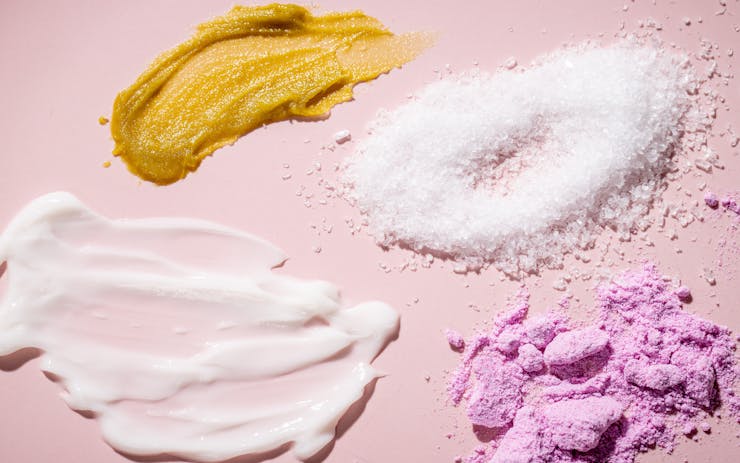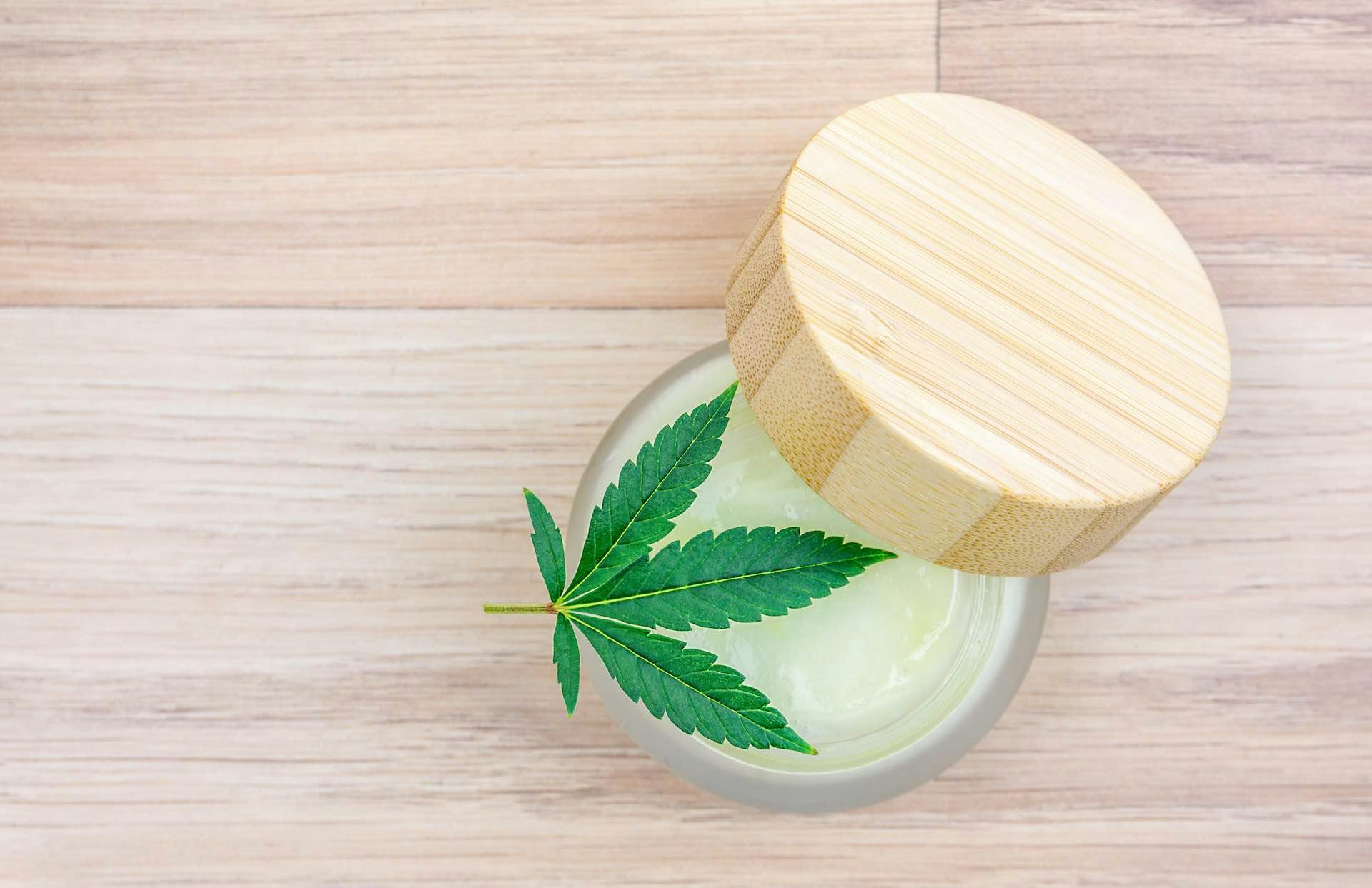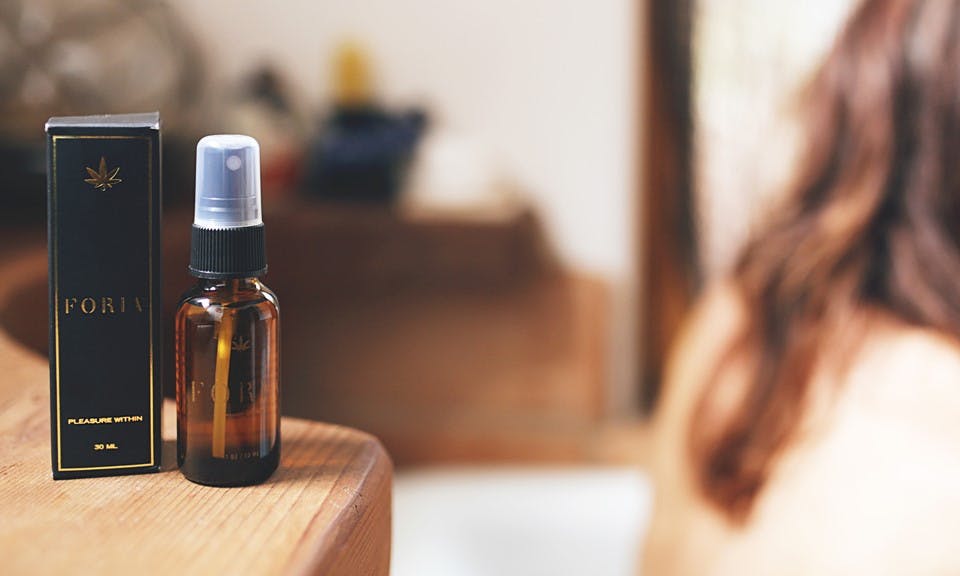Cannabis topicals have long been backed by anecdotal evidence—ask around, and you’re likely to find a friend or family member who believes in the power of cannabis-infused balms to reduce localized pain or heal skin conditions.
So far very little evidence supports these anecdotes, but that’s not to say there isn’t any proof, either.
There is some research to support using cannabis-infused oils, creams, and balms for localized pain—think sore muscles, arthritic joints, or nerve pain. Early studies also suggest that cannabis topicals can work to treat acne, eczema, and psoriasis, although it’s not entirely clear how.
“The effect of CBD is primarily in relation to your immune system, it appears,” says Dr. Andrew Kerklaan, DC, a Montreal-based chiropractor who started studying the endocannabinoid system just a few years ago and has since launched a CBD topicals line that has gained media attention from Vogue, Allure, and goop.
“So your skin being the biggest organ involved in your immune response, has a lot of CB1 and CB2 receptors in it. And so you get this very strong affinity towards cannabinoids, and that helps them modulate the immune responses—anti-inflammatory is one of the big responses in the skin as a result of CBD.”While CBD’s benefits are becoming better understood, THC’s role is still a bit of a mystery when it comes to topicals.
While CBD’s benefits are becoming better understood, THC’s role is still a bit of a mystery when it comes to topicals.
According to Dr. Kerklaan, THC is a strong painkiller. “It also has anti-itch and other components which make it useful in a topical overall,” he says. “If you’re specifically talking about pain, THC binds to receptors like CBD does. THC has the opportunity to offer pain relief.”
Dr. Kerklaan also references what is called the entourage effect—how CBD, THC, and the terpenes from each strain interact to create a seemingly more potent therapeutic effect.
Still, in the absence of robust data sets, it can be hard for consumers to sort out real benefits from perceived ones.
The good news is that unless you have a cannabis allergy, cannabis topicals are unlikely to cause harm, or to induce a high. Seek legal—and therefore regulated—products containing good-quality secondary ingredients, and the worst case scenario is that you’ll end up buying a decent product, even if doesn’t cure all that ails your skin.
Here are the main categories of topicals, how they work, and what we know about them so far:
Skincare
This includes serums, face creams, and masks, body lotion, and even lip balms.
In recent years, the beauty industry has been touting cannabis, and particularly the cannabinoid CBD, as the next big skincare ingredient, but the jury is still out on exactly how it works.
CBD may calm breakouts and irritation by reducing excess sebum production and acting as an anti-inflammatory, which might protect complexions from signs of aging and redness. Some pre-clinical trials have even suggested that cannabinoids may have a positive effect on psoriasis, allergic skin reactions, and potentially even skin cancer.
Bath Soaks and bath bombs
Having a long soak to soothe sore muscles or relax after a stressful day is not new. But infusing that warm water with derivatives from the cannabis plant is—at least to mainstream Canadian consumers.
Cannabis-laden bath bombs and soaks are just like your garden-variety versions, but with CBD and/or THC as the star ingredients.
While adding cannabis to these formulas is likely to jack up the price, it’s tough to say if it will produce any benefits. Devotees use these bath bombs and soaks to soothe menstrual cramps, radiating pain, and workout-induced muscle soreness.
When using an infused bath product, your overall exposure to each cannabis ingredient is higher. “And we do have certain skin, what we would call spinosum, that is highly absorbable,” Dr. Kerklaan says. “I think there is a question around whether a bath bomb with THC could actually give some psychogenic effect. I would leave that question out there.”
Dr. Kerklaan reiterates that absorption of THC into the skin hasn’t been looked into in detail yet, but he believes that because THC, like CBD, is a rather large molecule, it doesn’t tend to penetrate the skin very well.
Where CBD can interact with the cannabinoid receptors in the skin to help with localized pain, THC would need to penetrate the skin and get into the bloodstream in order to make it to the brain and result in any psychoactive effect.
(It’s worth noting that this mechanism does not apply to transdermal patches, which contain carrier ingredients designed to draw THC into the bloodstream, and which can therefore induce a high.)
Salves, roller balls, balms
We already have some evidence that cannabis topicals can soothe localized pain, and salves and balms are highly concentrated topicals. Although proper dosing for topicals is yet to be determined, roller balls have the added benefit of adding a slight massage along with application.
CBD’s potential to help with joint pain and muscle aches is still deep in the research phase, but Dr. Kerklaan believes enough in the preliminary trials to bank a brand on it.
As humans we're probably going to complain about three things: We're going to complain about muscle tension, inflammation, and about pain from a musculoskeletal perspective. And CBD has the opportunity to influence those three factors.
“That’s kind of a sticky point as a result of not getting specific claims because of a lack of research at the moment,” he says. “But your endocannabinoid system is very involved in pain perception, pain response, and inflammation…I like to point out that as humans we’re probably going to complain about three things: We’re going to complain about muscle tension, inflammation, and about pain from a musculoskeletal perspective. And CBD has the opportunity to influence those three factors.”
So how does a CBD topical actually affect localized pain? Dr. Kerklaan explains it like this: If you have a sore knee, let’s say, the cannabinoid receptors at the skin level have the potential to alter our pain response overall.
“It’s not necessarily that you have to get the CBD molecule deep into the epidermis to have an impact on our pain response or on our inflammatory pathways,” he adds. “You could still get this effect from a topical.”
Dr. Kerklaan recommends topicals for everyday pain, like muscle soreness from exercise and minor issues that we run into on a daily basis. But if you’re in extreme pain, he suggests talking to a physician about pairing a topical with an ingestible cannabis product as well.
Lubes
Cannabis has been used as an aphrodiasic for centuries, and preliminary data suggests people who consume it before sex have heightened experiences. However, the benefits of infused lube are still up for debate.
Applied like conventional lubricants, those who back cannabis-infused products claim they add to the sensation of sexual play, while relaxing muscles and reducing pain. THC is a vasodilator, so it stands to reason that a THC-based lube could also increase blood flow to the genital area, heightening sensations.
“CBD acts as an anti-inflammatory so it’s good for women who have pain during sex or who experience dryness,” says Angela Mustone, founder of High On Love, a brand that carries both CBD- and THC-infused lubricants (and available where their products are legal).
Mustone also states that CBD will not impact orgasms the way THC can; she says that THC in the bloodstream can increase orgasm intensity. The potential is there, but once again, more clinical trials need to be done before we can definitively prove claims either way.







